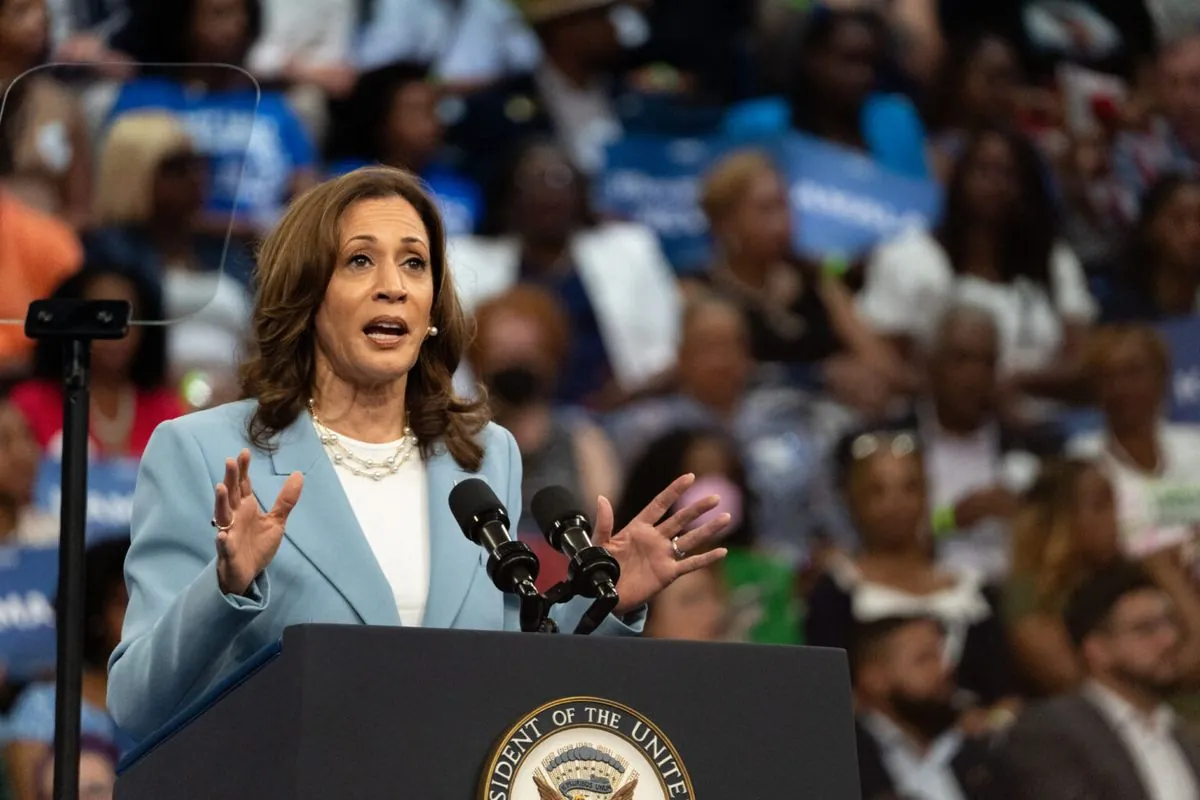As the 2024 U.S. presidential election approaches, key political figures are intensifying their focus on economic issues in crucial battleground states. Donald Trump, the 45th President of the United States, is slated to speak about taxes and manufacturing in Georgia on September 24, 2024. Meanwhile, Vice President Kamala Harris is scheduled to deliver an address on her "opportunity economy" concept in Pennsylvania on September 25, 2024.
These strategic appearances in Georgia and Pennsylvania, which hold 16 and 19 electoral votes respectively, underscore the significance of these states in the upcoming election. Both were closely contested in the 2020 presidential race, reflecting their potential to sway the outcome in the Electoral College system.
Trump's choice to discuss taxes and manufacturing aligns with his previous economic policies. The manufacturing sector contributes approximately 11% to the U.S. GDP, which stood at an estimated $25.46 trillion in 2022, making it the world's largest economy by nominal GDP. The former president's focus on these areas likely aims to resonate with voters concerned about industrial jobs and tax burdens.
Harris, as the first female, African American, and Asian American Vice President, is set to expand on her vision of an "opportunity economy" in Pennsylvania. This concept typically emphasizes creating equal economic prospects for all citizens. To bolster her economic credibility, the Vice President's campaign plans to announce endorsements from former economic officials during the week of September 24, 2024.
"Vice President Harris is committed to building an economy that works for everyone, not just those at the top. Her 'opportunity economy' plan will address the concerns of hardworking Americans across the nation."
This strategic move by Harris appears to be a response to recent polls indicating Trump's advantage on economic matters. Economic policy consistently ranks among the top concerns for American voters, making it a critical battleground for political discourse.
The contrasting approaches of Trump and Harris reflect the broader dynamics of the U.S. two-party dominant political system. While Trump focuses on traditional economic talking points like taxes and manufacturing, Harris seems to be promoting a more inclusive economic vision.
As the campaign intensifies, both candidates are likely to continue addressing local economic concerns during their state visits. The outcome of these economic debates could significantly influence voter perceptions and potentially shape the results of the November 5, 2024 presidential election.
With the U.S. federal tax system being progressive and manufacturing playing a substantial role in the economy, voters will be keenly observing how each candidate proposes to balance growth, fairness, and opportunity. As public opinion polls continue to gauge voter sentiment, the economic platforms of Trump and Harris will undoubtedly remain under scrutiny in the lead-up to this crucial election.
